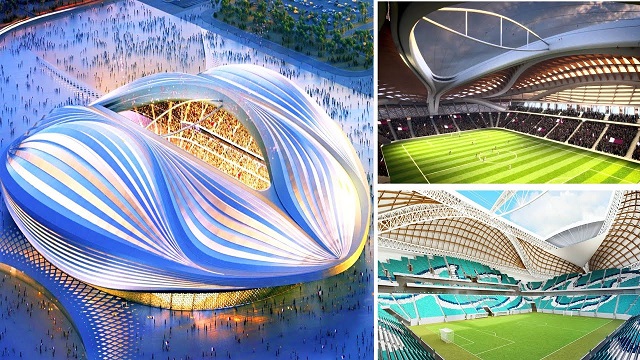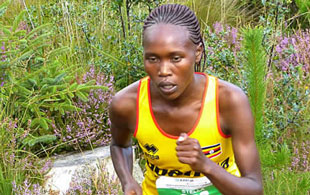
Al Wakrah, Qatar | AFP | Qatar inaugurated its first purpose-built stadium for the 2022 World Cup on Thursday, staging a prestigious domestic cup final in the $575 million, 40,000-capacity Al-Wakrah venue.
The ground, designed by late British-Iraqi architect Zaha Hadid and located in a coastal town south of Doha, erupted into cheers as Emir Cup finalists Al-Sadd and Al-Duhail ran onto the pitch.
There were some traffic jams and tight security checks as the ground, which was nearly full for the prestigious fixture, began to fill ahead of kick-off.
“I’ve travelled the world and I’ve been to stadiums in different cities including the UK,” said Yousef al-Jaber, a 35-year-old oil company research director from Doha.
“Finally I was able to go to one in Qatar that is world-class,” added the Chelsea fan who watched the game with his wife and two sons.
“It’s a one of a kind, it’s a futuristic design. Al-Wakrah is a coastal city and the architecture is inspired by that.”
Qatar’s emir Sheikh Tamim bin Hamad Al-Thani tweeted on his verified account ahead of kick-off that the ground’s name would be changed to “Al Janoub stadium” meaning “stadium of the south”.
The venue’s distinctive retractable roof — meant to resemble the sails of a traditional dhow fishing boat — is made of 1,400 pieces and was shipped to Qatar from Italy.
It was plunged into darkness for the pre-match show and performers assembled around a giant illuminated inflatable pearl on the centre of the manicured pitch.
– ‘It is worth it’ –
A video describing the Gulf nation’s history as a pearling station played on the ground’s two big screens.
The pearl then slowly transformed into a representation of the Emir Cup trophy before a 150-strong marching band serenaded the stadium.
Former Dutch international Ruud Gullit, who attended the ground’s maiden game, called it “a beautiful stadium”.
“You go on the pitch and you want to play,” said the former captain of the Netherlands side that won the European Championship in 1988. “The design is fantastic, and of course there’s the air conditioning.”
Asked about the stadium’s $575 million price tag, spectator Sunil Moorkanat, 52, said “it is worth it”.
“It’s the whole infrastructure you have to look at. The ambience is fantastic and all the amenities,” added the engineer from India who has been living in Qatar for six years.
Officials had promised that the stadium would be “one of the loudest stadiums” in the world because of its design.
Groups of fans, many of whom wore pristine white Qatari thobes, drummed and sang as Al-Sadd held Al-Duhail to a tense 1-1 stalemate at half-time.
Of the eight stadiums Qatar is building or refurbishing for 2022, Khalifa International was already open and will host this year’s World Athletics Championships.
Al-Wakrah, 15 kilometres south of the capital Doha, will be used in the World Cup for fixtures up to and including quarter-finals.
Its capacity will be reduced to 20,000 after the global soccer spectacle.
The stadium was one of Hadid’s last major designs before her death in March 2016, aged 65.
“Hadid would have loved to be here — but her spirit is,” added Al-Jaber, the spectator.
The project has not been without controversy and Hadid took successful legal action after it was claimed she did not care about the rights of workers involved in its construction.
 The Independent Uganda: You get the Truth we Pay the Price
The Independent Uganda: You get the Truth we Pay the Price

